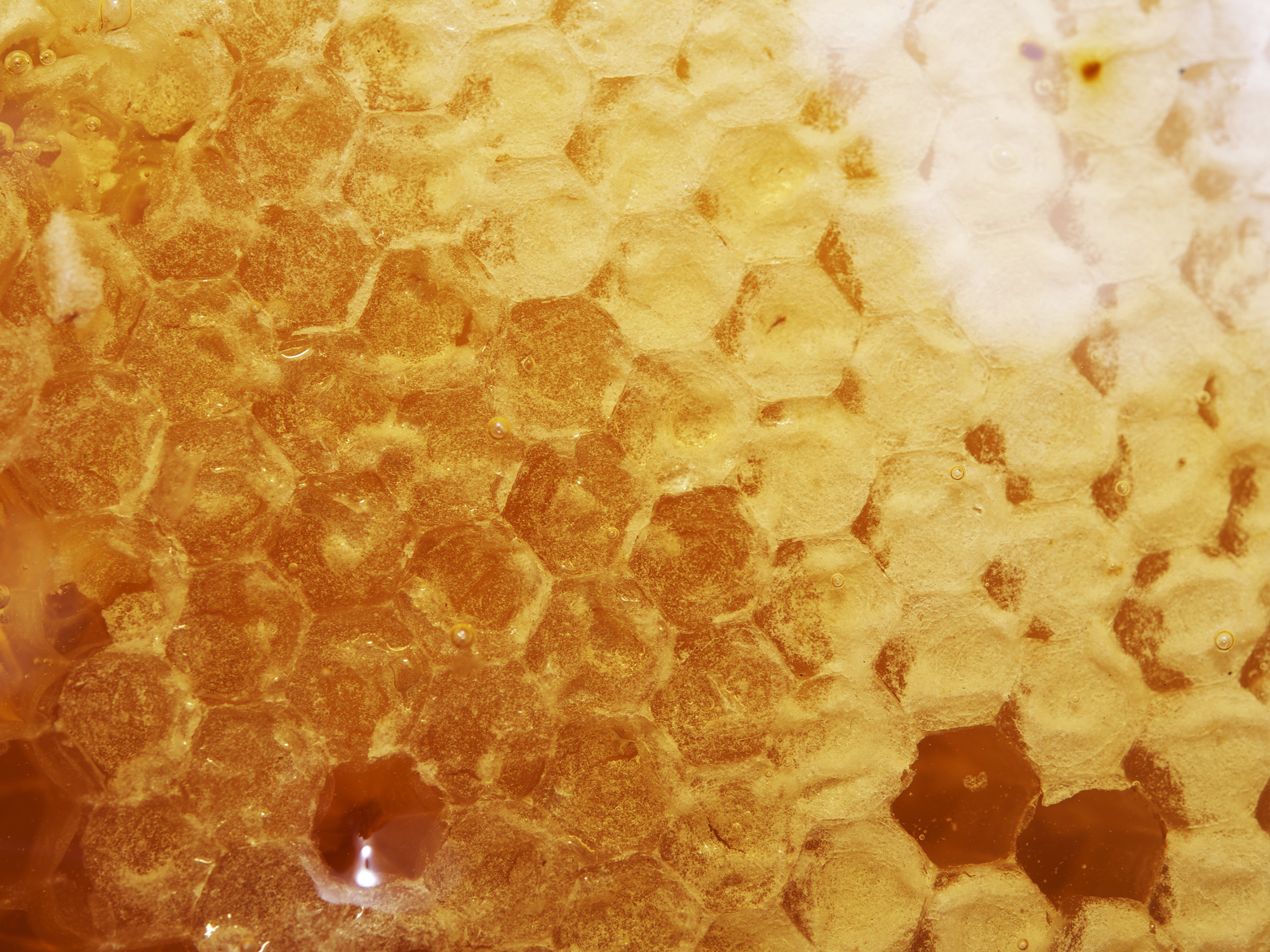Get Easy Health Digest™ in your inbox and don’t miss a thing when you subscribe today. Plus, get the free bonus report, Mother Nature’s Tips, Tricks and Remedies for Cholesterol, Blood Pressure & Blood Sugar as my way of saying welcome to the community!
5 healing uses of Manuka honey

Honey is really healthy…
It’s antibacterial, anti-inflammatory and contains antioxidants — which means it battles bacteria, cools inflammation and fights off free radicals.
But there’s one particular kind of honey that stands out from the pack when it comes to health benefits…
Manuka honey.
Manuka honey is made from the nectar of Manuka trees, which are native to Australia and New Zealand. It’s healthier than other types of honey, because it contains a large amount of an active compound called methylglyoxal (MGO), which has powerful antimicrobial abilities.
Manuka honey is one of those natural remedies that can easily sound too good to be true. Some say Manuka honey can do everything from healing allergies to lowering cholesterol to fighting cancer.
Of course, not all of the reported benefits of Manuka honey have been proven by science. That doesn’t mean they’re not true, just that they haven’t been studied yet…or haven’t been studied thoroughly enough to say for sure if they’re true. But here are five healing uses of this amazing honey that are scientifically-proven:
1. Wound healing
All types of honey can help with wound healing, because they’re high in sugar and low in pH, which prevents microbes from growing. A reaction that takes place in honey also produces high amounts of hydrogen peroxide, which fights off bacteria and other microbes. But because it contains so much methylglyoxal (MGO), Manuka honey is special. It’s been shown to fight off antibiotic-resistant superbugs that no other honey or modern medical treatment can. One 2011 study even found that Manuka honey can make these superbugs less resistant to antibiotics. That means, it’s helpful in those cases when a wound just won’t heal and antibiotics are not helping. So if you have a stubborn wound (or even just an everyday one), slather on some Manuka honey, grab some gauze and call it a day.
2. Strep throat
More than one study shows that Manuka honey kills the bacteria that causes strep throat, Streptococcus. This is great news, since some people get recurring strep, which happens when strep is antibiotic-resistant or just keeps coming back. For people dealing with this problem, Manuka honey could kill those painful strep-causing bacteria once and for all. If you’re struggling with a recurrent or antibiotic-resistant sore throat, eat some Manuka honey and see what happens.
3. Gingivitis
Manuka honey can also kill the bacteria that causes gingivitis. One 2004 study found that people who chewed or sucked on a Manuka honey product were able to significantly reduce plaque in their mouth and improve their gingivitis. Another study conducted in 2014 found that people receiving orthodontic care could reduce the bacteria in their mouth and their risk for gingivitis by chewing Manuka honey. So if you have dental problems, Manuka honey might be a helpful addition to your oral care regimen.
4. Gut health
Manuka honey is a prebiotic, which means it’s food for the healthy bacteria in your gut. Studies have also shown that it’s effective against the dangerous gut bacteria helicobacter pylori, which can cause ulcers and even stomach cancer. It’s also been shown to help with the stomach flu, acid reflux and indigestion.
5. Bladder infections
Bladder infections are another ailment that’s becoming highly resistant to the antibiotics used to treat them. But one study conducted just last year shows that Manuka honey may be able to help. In this study, Manuka honey stopped the growth of bacteria that cases urinary tract infections. It also prevented this bacteria from forming biofilms, thin layers of bacteria that stick to your bladder and cause chronic or reoccurring bladder infections. If you want to use Manuka honey to ease bladder infections or prevent them, mix some in your tea or combine it with apple cider vinegar and lemon for an even more antibacterial health tonic.
Now, Manuka honey isn’t cheap, so you may want to save it for those occasions when you really need it. Like when those antibiotics just aren’t working for your strep throat, you have a bad bladder infection or a major wound that isn’t healing quite right. For less serious wounds and ailments, you may want to turn to regular honey. It has many of the same benefits without the eye-popping price tag.
Editor’s note: Did you know that when you take your body from acid to alkaline you can boost your energy, lose weight, soothe digestion, avoid illness and achieve wellness? Click here to discover The Alkaline Secret to Ultimate Vitality and revive your life today!
Sources:
- “Is manuka honey really a ‘superfood’ for treating colds, allergies and infections?” — MedicalXpress. Retrieved September 19, 2017.
- “Honey can reverse antibiotic resistance.” — MedicalXpress. Retrieved September 19, 2017.
- A. Atwa, et al. “Effect of honey in preventing gingivitis and dental caries in patients undergoing orthodontic treatment.” — The Saudi Dental Journal. 2014; 26(3): 108-114.
- K. English, et al. “The effects of manuka honey on plaque and gingivitis: a pilot study.” — Journal of the International Academy of Periodontology
- “Manuka honey is the bees knees.” — The Independent. Retrieved September 19, 2017.
- “Recurring Strep Throat: What to Do When It Comes Back.” — VeryWell. Retrieved September 19, 2017.
- C. Nzeako and F. Al-Namaani. “The Antibacterial Activity of Honey on Helicobacter Pylori.” — Sultan Qaboos University Medical Journal. 2006 Dec; 6(2): 71–76.













